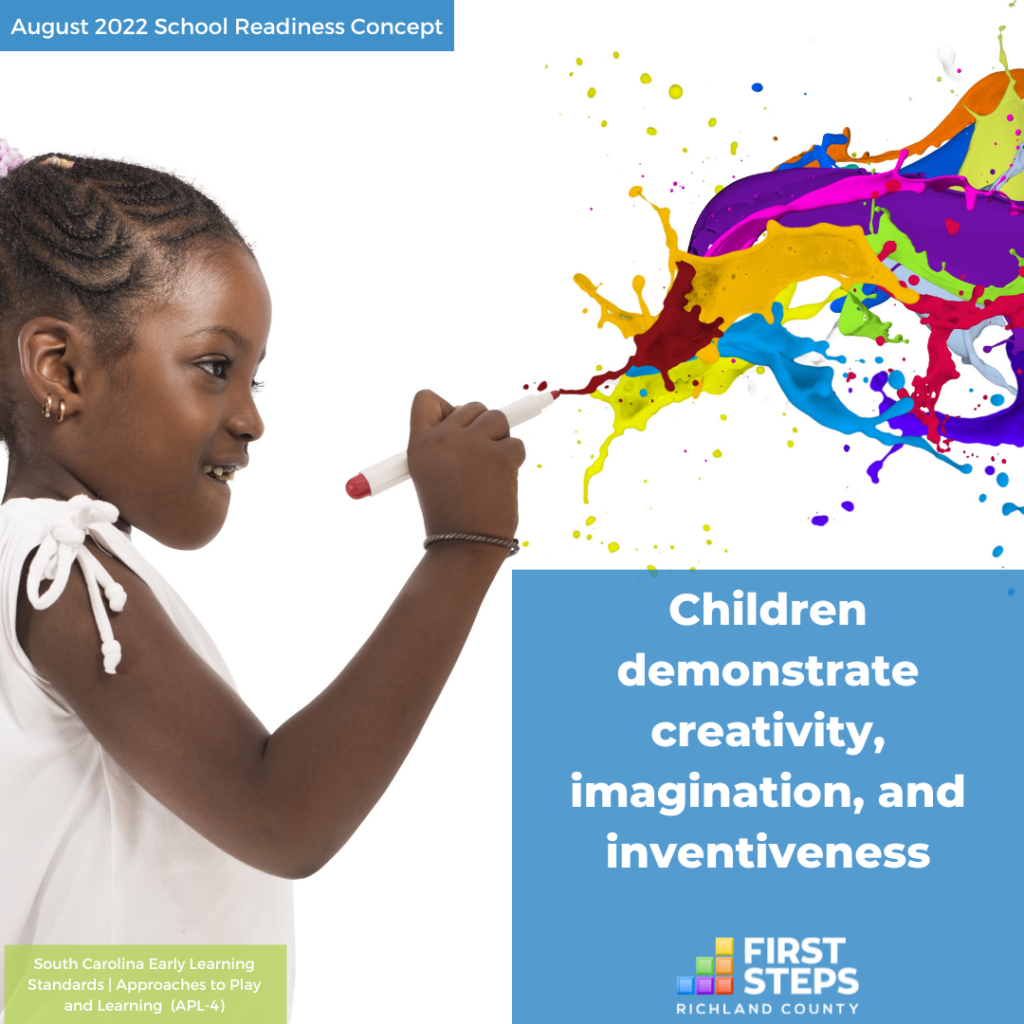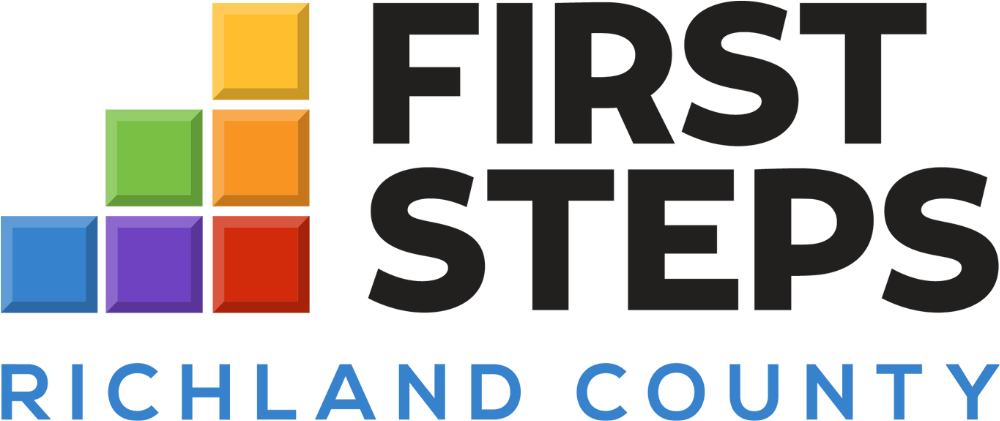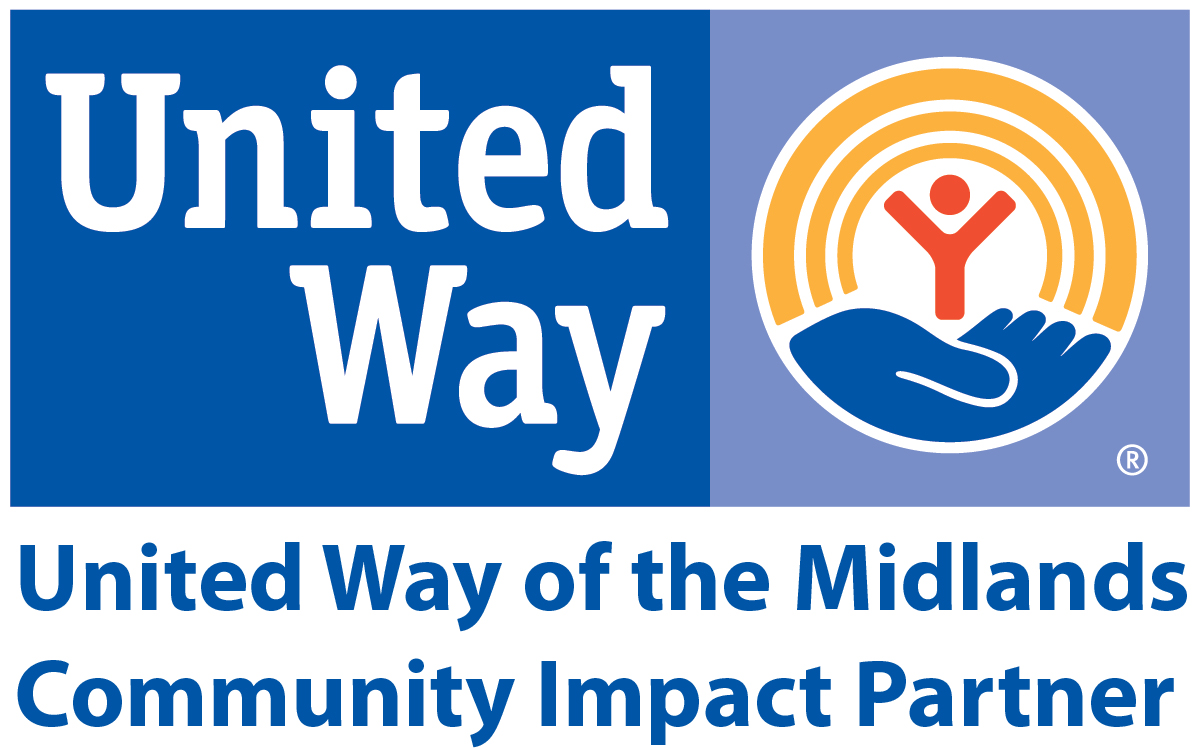
Each month, Richland First Steps selects one school readiness goal from the SC Early Learning Standards (SCELS) to spotlight throughout our programs for children, families, and child care providers.
This month’s concept comes from the Approaches to Play and Learning domain of the SCELS. Like all of the standards, there are developmental indicators that show a child’s progress on this goal at each stage:
Infants (Birth to 12 months)
- Use everyday household objects for play (spoons, pots and pans, plastic bowls).
- Try a familiar action with a new object or person (try to bounce a block, wave bye-bye to a toy, make a sound to get a new adult’s attention.
- React to unexpected events with laughter and interest.
Younger Toddlers (8 to 21 months)
- Do new things with familiar objects or combine them in unusual ways (use a dress-up boa as a snake, pound a drum with a plastic bottle, try to stack bears).
Older Toddlers (18 to 36 months)
- Do new things with familiar objects or combine them in unusual ways (use a dress-up boa as a snake, pound a drum with a plastic bottle, try to stack bears).
- Pretend to be somebody or something or than themselves.
- Pretend one object is really something different (use Lego® as food while stirring a pot).
Younger Preschoolers (36 to 48 months)
- Offer new ideas about how to do or make things.
- Add new actions, props, or dress-up items to pretend play.
- Use materials (e.g. art materials, instruments, construction paper, writing implements) or actions to represent experiences or ideas in novel ways.
- Experiment with language, musical sounds, and movement.
Older Preschoolers (48 to 60+ months)
- Plan play scenarios (dramatic play, construction), and use or create a variety of props or tools to enact them.
- Expand the variety of roles taken during dramatic play and add more actions, language, or props to enact roles.
- Use materials or actions in increasingly varies and resourceful ways to represent experiences or ideas.
- Make up stories, songs, or dances for fun during play.
- Invent new games.
Learn more:

